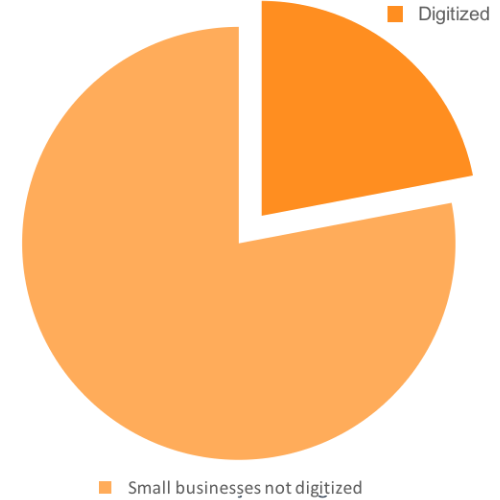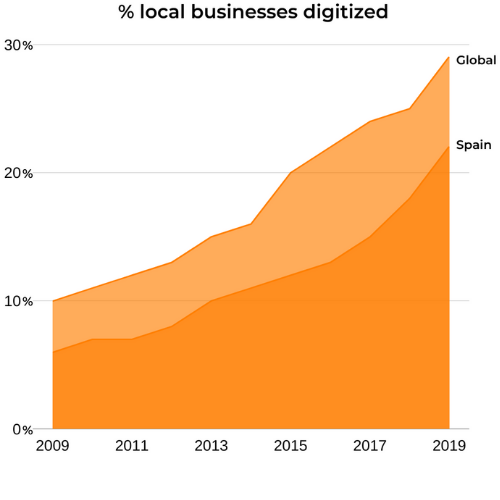
The digital transformation to the retail sector, of small businesses has been gradual. There are some businesses that have a presence, but do not use this function as such to promote their business, and in most cases they cannot receive online orders.
More and more, we see that having a virtual store is essential, and the health crisis we are experiencing has accentuated this need.
During the confinement the small businesses had to put up with the stoppage of their activities because they were not considered essential, while other large companies (Amazon, Corte Inglés…) continued to sell all kinds of products online.
Among other things, this was due to not having any platform or sufficient digitization to deal with this situations. This data has meant that since the confinement began, Amazon has gone from a valuation in the stock market of 1,600 USD in March to 3,500 USD in September, having risen 68% since the beginning of the year.
Therefore, the handicap of digitization has led to a further widening of the gap between small businesses and large companies.
In Spain, only the 22% of retail stores are digitally present (2020. 2019 Retail Report. [ebook] 451 Research). This number is worrisome considering the current purchasing habit of the Spanish median population.

In addition, these levels of digitization of small businesses are a step behind the global median of the remaining countries.
This step backwards has meant that many of these small businesses, which have not been integrated into the digital world, have been forced to close for not having adapted to the environment.
